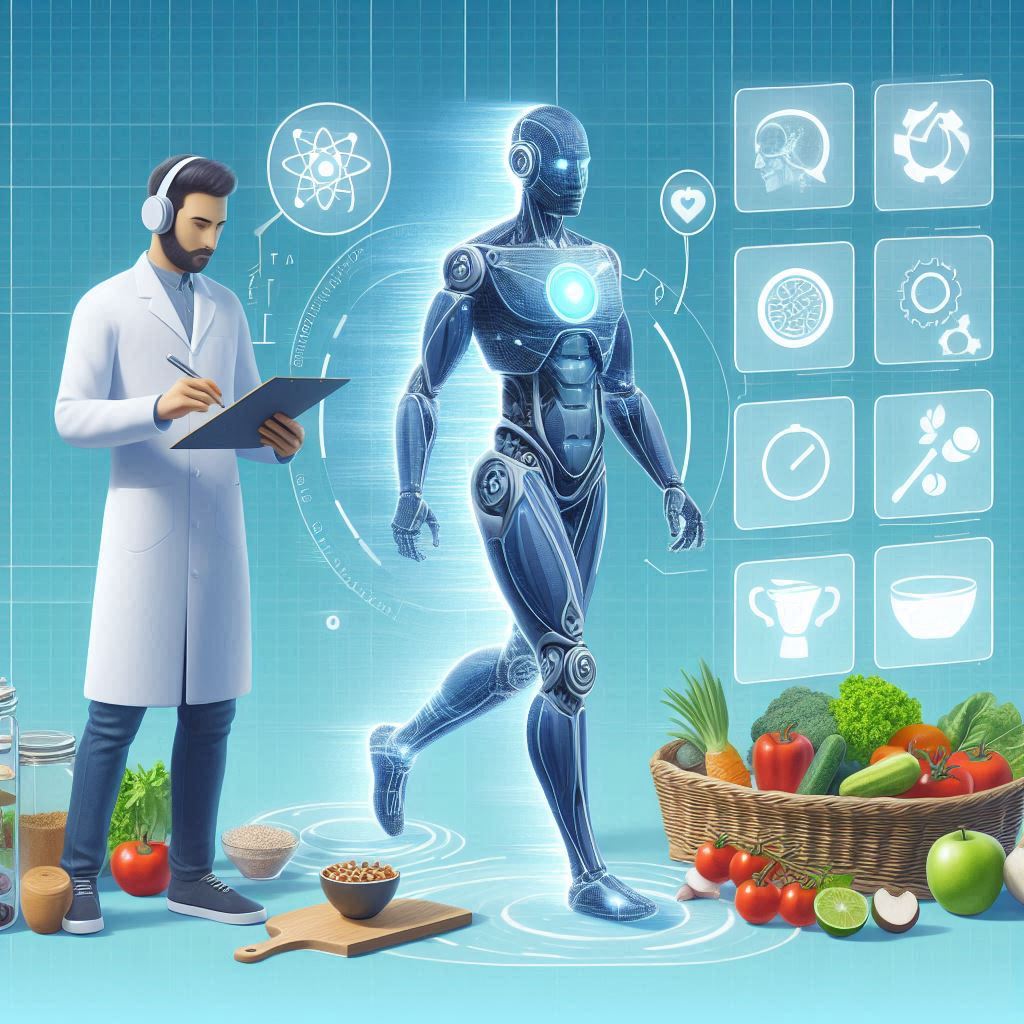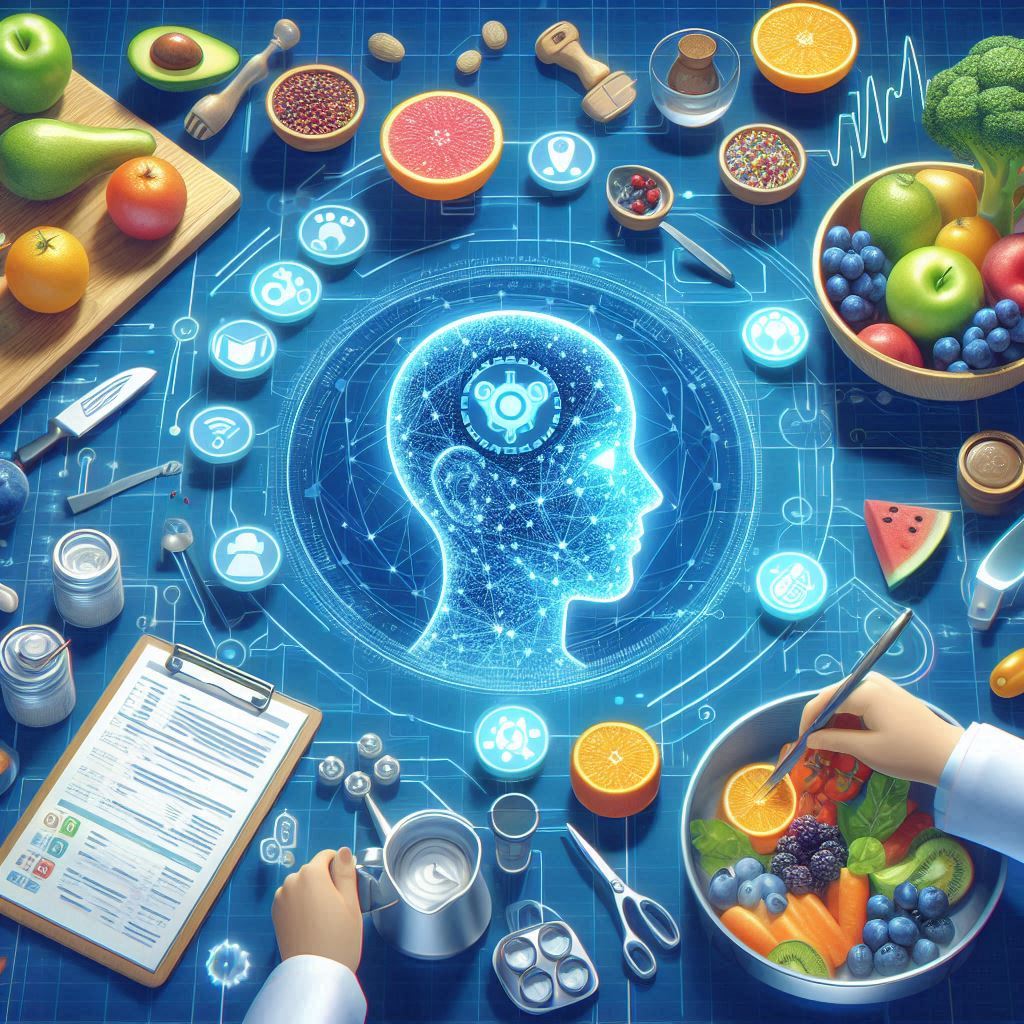Title: FAQs on AI in Mental Health
1. What is AI in mental health?
Answer: AI in mental health refers to the use of artificial intelligence technologies to support, enhance, or transform mental health care. This includes various applications such as chatbots for therapy, algorithms for diagnosing mental health conditions, and predictive analytics for personalized treatment plans. AI aims to improve the accessibility, efficiency, and effectiveness of mental health services by leveraging data and machine learning.
External Link: Harvard Business Review: How AI is Transforming Mental Health Care
2. How does AI diagnose mental health conditions?
Answer: AI diagnoses mental health conditions by analyzing patterns in data, such as speech, text, and behavioral metrics. Machine learning algorithms can identify symptoms and markers associated with mental health disorders by processing large datasets from clinical records, surveys, and self-reported symptoms. AI tools may use natural language processing (NLP) to analyze the content of conversations or written assessments to detect signs of mental health issues.
External Link: Nature: AI-Based Diagnostic Tools in Mental Health
3. What are the benefits of using AI in mental health care?
Answer: The benefits of AI in mental health care include:
- Enhanced Diagnostic Accuracy: AI can provide more accurate and timely diagnoses by analyzing complex data patterns.
- Personalized Treatment: AI systems can tailor treatment plans based on individual data, improving the effectiveness of interventions.
- Increased Accessibility: AI tools, such as chatbots and virtual therapists, provide support anytime, anywhere, particularly beneficial for remote or underserved areas.
- Scalability: AI can offer mental health services to a large number of users without a proportional increase in resources.
- Continuous Monitoring: Wearable devices and apps can monitor mental health in real-time, offering ongoing support and early intervention.
External Link: Forbes: The Benefits of AI in Mental Health
4. What are the challenges associated with AI in mental health?
Answer: Challenges associated with AI in mental health include:
- Privacy Concerns: AI systems handle sensitive personal data, raising issues about data security and privacy.
- Lack of Human Empathy: AI lacks the ability to provide genuine emotional support and empathy, which are crucial in mental health care.
- Algorithmic Bias: AI systems can inherit biases from training data, potentially leading to unfair or skewed outcomes.
- Dependence on Technology: Over-reliance on AI may reduce the use of traditional therapeutic methods and personal interactions.
- Technical Limitations: AI may struggle with the nuances of complex mental health issues, leading to potential inaccuracies.
External Link: MIT Technology Review: Challenges in AI Mental Health
5. How can AI improve accessibility to mental health care?
Answer: AI improves accessibility to mental health care by providing scalable solutions that can reach individuals regardless of location. AI-powered chatbots and virtual therapists offer support 24/7, enabling users to access mental health resources and interventions outside of traditional office hours. This is particularly beneficial for individuals in remote areas or those who face barriers to accessing in-person services.
External Link: Harvard Business Review: AI and Accessibility in Mental Health
6. Are AI tools in mental health reliable and accurate?
Answer: The reliability and accuracy of AI tools in mental health vary depending on the technology and data used. While AI has shown promise in improving diagnostic accuracy and personalized treatment, there are concerns about the quality of algorithms and the potential for errors. Continuous validation and updating of AI models are necessary to ensure their effectiveness and reliability in clinical settings.
External Link: ScienceDirect: Evaluating the Accuracy of AI in Mental Health
7. Can AI replace human therapists?
Answer: AI is not intended to replace human therapists but rather to complement and enhance mental health care. While AI tools can provide valuable support and resources, they cannot fully replicate the human empathy and relational aspects that are central to effective therapy. AI can be used as a supplementary tool to assist therapists and provide additional support to individuals.
External Link: Psychology Today: AI and Human Therapists
8. How is data privacy ensured in AI mental health applications?
Answer: Ensuring data privacy in AI mental health applications involves implementing robust security measures such as encryption, anonymization, and secure data storage. Organizations must comply with data protection regulations, such as GDPR or HIPAA, to safeguard personal information. Additionally, transparency about data usage and obtaining informed consent from users are crucial practices.
External Link: The Guardian: Data Privacy in AI Mental Health Tools
9. What role does AI play in continuous mental health monitoring?
Answer: AI plays a significant role in continuous mental health monitoring by analyzing data from wearable devices, mobile apps, and other sources to track changes in mental health status. AI systems can provide real-time insights and alerts based on physiological and behavioral data, enabling early intervention and ongoing support for individuals.
External Link: Wired: AI and Continuous Mental Health Monitoring
10. How can individuals get started with AI mental health tools?
Answer: Individuals interested in AI mental health tools can start by exploring available apps and platforms that offer AI-driven support. Many tools provide free or trial versions, allowing users to assess their features and effectiveness. It is important to research and select reputable tools, consider user reviews, and consult with mental health professionals when integrating AI solutions into personal care.
External Link: TechCrunch: Getting Started with AI Mental Health Tools
Conclusion
- Summary of key points.
- Encouragement to consider both the advantages and limitations of AI in mental health.
- Reminder to seek professional advice when using AI tools for mental health support.
This FAQ section addresses common queries about AI in mental health, providing detailed answers and external resources for further reading.
Disclaimer and Caution: Understanding the Use of AI in Mental Health
Introduction
Artificial Intelligence (AI) is revolutionizing many aspects of mental health care, offering innovative solutions that can enhance diagnostics, personalize treatment, and improve accessibility. However, while AI tools bring significant benefits, it is crucial to understand their limitations and potential risks. This disclaimer and caution section aims to provide a comprehensive overview of these aspects, ensuring users are well-informed about the responsible use of AI in mental health.
1. No Substitute for Professional Medical Advice
Disclaimer: AI-driven mental health tools are not substitutes for professional medical advice, diagnosis, or treatment. These tools can provide valuable support and insights, but they do not replace the expertise of licensed mental health professionals. Users should always seek the guidance of qualified therapists, psychologists, or psychiatrists for comprehensive mental health care.
Caution:
- Relying solely on AI tools for mental health management may lead to inadequate care or missed diagnoses. It is essential to consult with mental health professionals for accurate assessments and personalized treatment plans.
- AI tools are designed to complement, not replace, traditional therapeutic practices. Regular check-ups and consultations with healthcare providers remain crucial.
External Link: American Psychological Association: AI and Mental Health
2. Accuracy and Reliability of AI Tools
Disclaimer: The accuracy and reliability of AI mental health tools can vary. While these tools leverage advanced algorithms and large datasets, they are not infallible. Errors in AI predictions or recommendations can occur due to limitations in data quality, algorithm design, or the complexity of mental health conditions.
Caution:
- Users should be aware that AI tools may not always provide accurate or complete information. It is important to cross-reference AI recommendations with professional medical advice.
- AI systems are continuously evolving, and their performance can be affected by changes in technology or data. Users should stay informed about updates and improvements to the tools they use.
External Link: Nature Reviews: Evaluating AI in Mental Health
3. Data Privacy and Security
Disclaimer: AI mental health tools handle sensitive personal data, including potentially private information about mental health status, behavior, and emotions. While efforts are made to protect this data, no system is entirely immune to risks such as data breaches or unauthorized access.
Caution:
- Users should carefully review the privacy policies and security measures of AI tools before use. Ensure that the tool complies with relevant data protection regulations, such as GDPR or HIPAA.
- Consider using tools with strong encryption and data anonymization practices to minimize risks to personal information.
External Link: The Guardian: Privacy and AI Mental Health Tools
4. Potential for Bias and Fairness
Disclaimer: AI systems can inherit biases present in their training data, potentially leading to biased outcomes. This can result in disparities in the effectiveness of mental health tools for different demographic groups or individuals with specific needs.
Caution:
- Users should be aware of the potential for bias in AI tools and consider their applicability to diverse populations. Look for tools that are designed with fairness and inclusivity in mind.
- It is important to be cautious about relying solely on AI tools, especially for marginalized or underserved groups, and to seek additional support if needed.
External Link: MIT Technology Review: AI Bias in Mental Health
5. Limitations of AI in Understanding Complex Emotions
Disclaimer: AI tools may struggle with interpreting complex emotional states or nuanced mental health conditions. While AI can analyze data and detect patterns, it lacks the depth of human empathy and understanding essential for addressing intricate emotional and psychological issues.
Caution:
- Users should recognize that AI tools may provide general insights but may not fully capture the subtleties of individual experiences. Complement AI support with professional therapy for comprehensive care.
- AI tools are best used as supplementary resources rather than primary sources of emotional support.
External Link: Psychology Today: AI and Emotional Understanding
6. Ethical and Legal Considerations
Disclaimer: The use of AI in mental health raises various ethical and legal questions, including concerns about consent, transparency, and accountability. Developers and users must navigate these issues to ensure responsible use of AI technologies.
Caution:
- Ensure that AI tools used in mental health adhere to ethical guidelines and legal standards. This includes obtaining informed consent from users and maintaining transparency about how data is used and protected.
- Stay informed about evolving regulations and ethical practices related to AI in mental health to make responsible choices.
External Link: Harvard Law Review: Ethical and Legal Issues in AI Mental Health
7. Impact on Human Interactions
Disclaimer: Over-reliance on AI tools for mental health support can affect human interactions and relationships. While AI can offer valuable support, it cannot replace the human connection and relational aspects that are integral to effective mental health care.
Caution:
- Balance the use of AI tools with in-person interactions and support. Maintaining strong connections with friends, family, and mental health professionals is essential for holistic well-being.
- Recognize the limitations of AI in providing emotional support and seek human connections for empathy and understanding.
External Link: The Atlantic: AI and Human Interaction
8. Responsibility for Misuse or Misinterpretation
Disclaimer: Users are responsible for how they use and interpret the recommendations provided by AI mental health tools. Misuse or misinterpretation of AI-generated information can lead to suboptimal outcomes or unintended consequences.
Caution:
- Use AI tools as part of a broader mental health strategy, including professional guidance and personal reflection. Avoid making critical decisions based solely on AI recommendations.
- Educate yourself about the limitations and appropriate use of AI tools to minimize risks and enhance their effectiveness.
External Link: IEEE Spectrum: Responsible Use of AI in Mental Health
Conclusion
The integration of AI in mental health offers promising opportunities to enhance care and support, but it is essential to approach these technologies with caution. Understanding the limitations, risks, and ethical considerations associated with AI tools is crucial for responsible and effective use. Always prioritize professional guidance and human connections while utilizing AI resources to support mental health.
This disclaimer and caution section provides a thorough overview of the key considerations when using AI in mental health, ensuring users are well-informed about the potential benefits and risk


